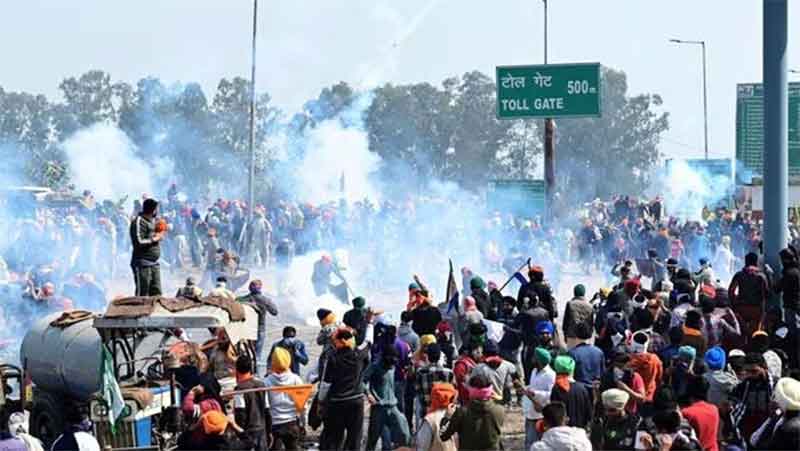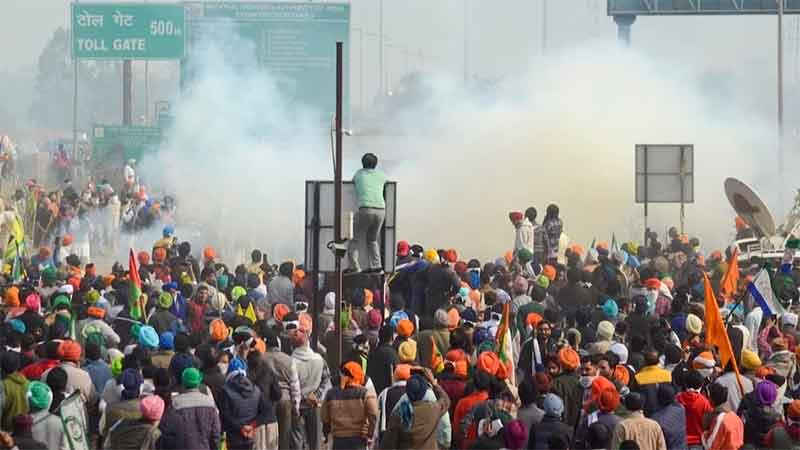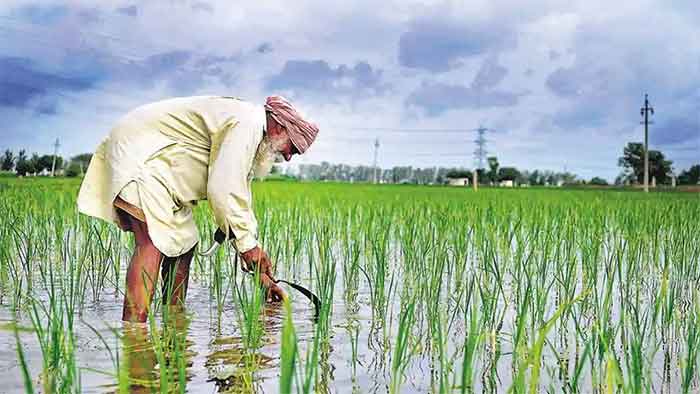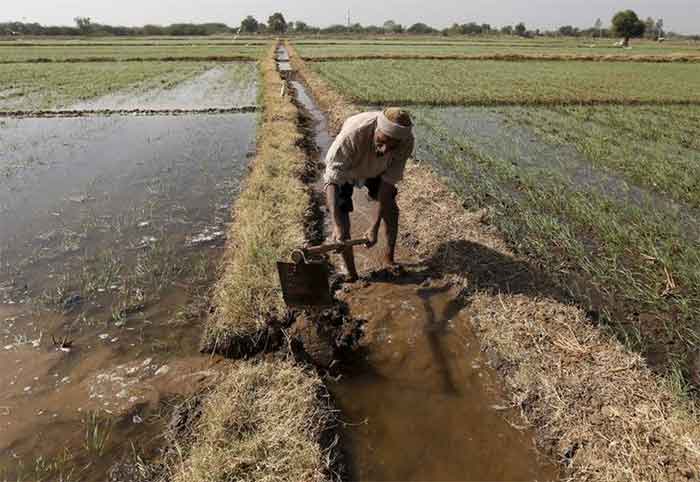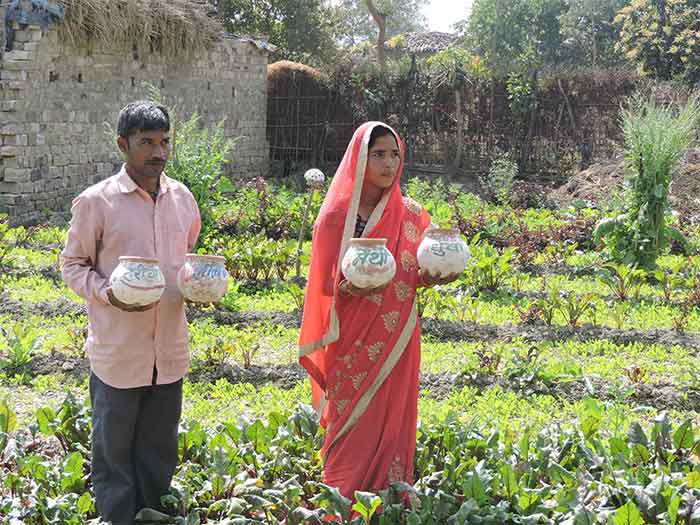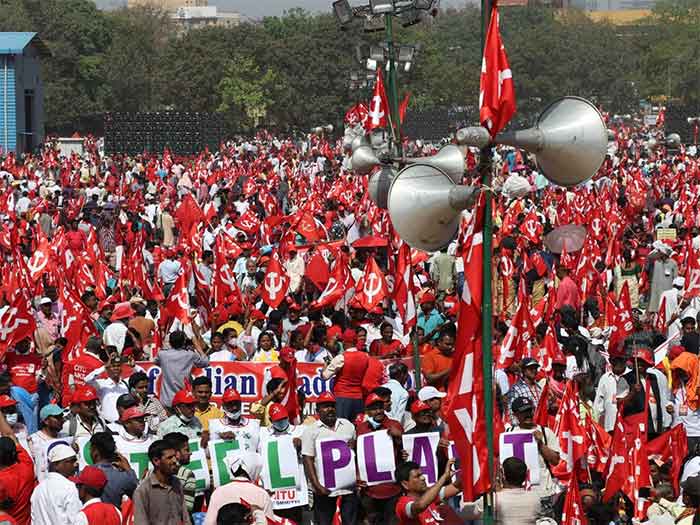
In the last few days, the way farmers, farm laborers and laborers from all over the country registered their presence in the capital Delhi by protesting on a large scale, it has to be said to be unprecedented. The ever-darkening Asmani Sultani crisis on agriculture is at the root of the peasant movement agitators. In this context, one of the main causes of the disaffection among the rural masses is the loss of agriculture, and in this situation, who were the people who filled the Ramli Maidan with red flags from Kashmir to Kanyakumari? It was primarily a mobilization of organized and unorganized sector workers, peasant farmers, working women and agricultural labor unions.
The continuing growth of enormous economic inequality in the country also confirms that ensuring corporate profits is the highest priority of the ruling classes. The Rs 45 lakh crore Union Budget, passed in just 12 minutes amid chaos in Parliament, is woefully short of tackling the two major problems of unemployment and inflation. Not only farmers and trade unions but also many eminent economists and agriculture experts had strongly criticized the budget for the massive cuts in the agriculture sector and MGNREGA. Similarly, by rejecting the issue of minimum basic guarantee price, the farmers are being pushed into the pit of debt. Farming business is not sustainable due to increase in the price of agricultural crops and not corresponding increase in income. The long march by thousands of farmers and tribals in Maharashtra a few weeks ago against the steep fall in prices of onions, potatoes and other products is a reflection of the simmering anger.
Crop loss due to climate change has become a perennial problem. At this time, pre-harvest unseasonal rains and spoilage in the ripening stage of rabi crops are even more damaging as the entire cost has already been borne by the farmer. Among these affected people are landless and smallholder farmers who take over someone else’s land and do contract farming. They have already paid the land contract amount by taking loan. These farmers do not even get compensation for crop failure.
Due to the massive informalization of employment due to liberalization and privatization policies, even permanent jobs have become temporary jobs. Relaxation of labor laws leads to lack of security in the service sector. There is no future in contract recruitment and there is a demand to abolish the practice. Although the working hours have increased, the minimum wage has not increased. It is being taken back to a compulsory system by removing the labor laws and implementing the Labor Code.
Supply of many essential commodities under the public distribution system has been phased out. In the name of 5 kg of free grain, 35 kg of grain at the rate of 2 rupees per kg has been stopped. A large number of people have been shown a way out of the social security net by recording arbitrary income in the family identity card. In fact, the question is not only of declining living standards but also of the survival of more than half of the population.
It should not be forgotten that the Constitution of India has given not only the right to life but also the right to live with ‘dignity’. So the laborers, farmers, working women who are setting the clock of the country to solve their basic problems came to the capital of the country to demand more egalitarian alternative policies instead of existing policies as per the guidelines of our constitution.
The alleged claims of development made by the government are only manna ki baat, bolachi kadhi an bolachi baat and all these claims have been rejected by the farmers, laborers and other sections. Contrary to the promises given to the people during the elections, the central government has asked where two crore jobs have gone every year. Leaders have done. The leader said that the working class is under threefold attack. The first is economic i.e. on livelihood, the second is on democracy and trade union rights and the third is on social harmony of the people. He also appealed to all parties to adopt a three-pronged strategy to defeat these attacks. Farmers and farm workers have challenged the government to change these anti-people policies. It was said that a mere 2% tax on the rich could raise more than 10 trillion. They have clearly declared that they do not agree with the existing policies and will agitate for alternative policies. This leader says that if the government does not pay attention to this, there will be no option but mass agitation
Vikas Parashram Meshram is a journalist
[email protected]

